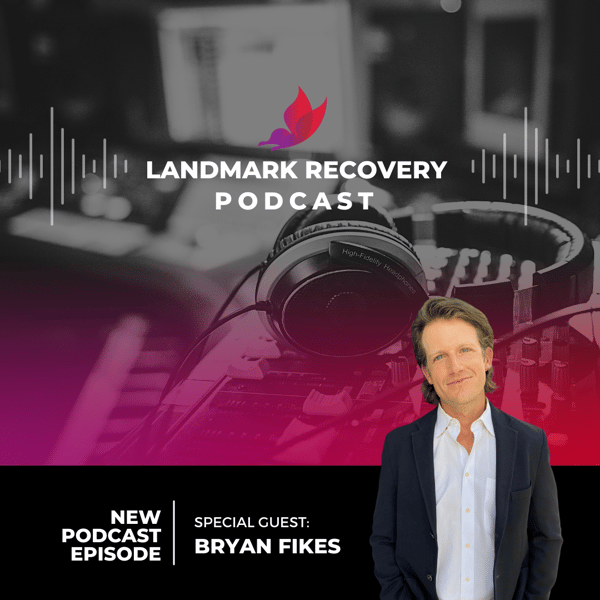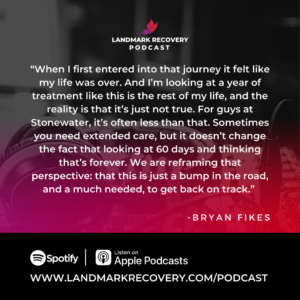Bryan Fikes on the Landmark Recovery Podcast

If you learn that your kid needs an adolescent recovery center, it can feel like it's the end of the world. Bryan Fikes, our CEO and one of the founders of Stonewater Adolescent Recovery Center, recognized this idea and discussed it on a recent episode of Landmark Recovery Radio. During this episode, he recounted his experience with receiving addiction treatment when he was only 16 years old and reminded listeners that, while this might feel like a significant stumbling block, finding treatment truly opens up the rest of your teen's life. To learn more about the fight with addiction that Bryan Fikes experienced or his journey to recovery, click the link below or call Stonewater Adolescent Recovery Center today at 662.373.2828.
Is Getting Treatment the End of the World?
Bryan Fikes started using drugs at a reasonably young age, and by the time he was a sophomore in high school, he was already on a dangerous path. What started as experimentation resulted in a little bit of jail time and led to 100 days in an intensive alcohol and drug addiction treatment program. Once he finished the program, he went to a therapeutic boarding school for about a year. He stated during the interview, "When I first entered into that journey, it really felt like my life was over. When I'm looking at a year of treatment, thinking that this is the rest of my life, and the reality is that that's just not true." He then went into the fact that it's essential to look at the situation from a grander perspective and understand that the stay at an addiction treatment center is a minor bump in the road. He also discussed the fact that he needed to come to terms with the fact that not doing drugs anymore changed his personal identity.What to Look for if You Suspect You or Someone You Love Is Battling Substance Use Disorders
One of the critical parts of the discussion Bryan Fikes had with Landmark Recovery is how to determine if you or someone you love is battling addiction. He stated that there are several vital things that you may need to look for if you suspect that substances have taken control of the individual's life, including:- Losing the desire to engage in their passions
- Isolation from other young people
- Anger, frustration, or blowups that are happening frequently
- Engaging in topics centered around drug use or legalization
- Lack of eye contact, as many drugs affect the eyes

The Balance Between Safety and Control
The discussion also highlighted the fact that addiction is rarely a condition that only affects the person using drugs. The entire family unit is involved, in one way or another, in the addiction. Parents must assess the situation honestly and, if they see the signs of substance use, act in a manner that is best for their teen. Doing so can help parents learn how to handle different challenges with their teens. Furthermore, it's essential to have fun together and support each other during both the recovery process and afterward. Doing so can encourage transparency and healthy relationships within the family. He also stated that it's crucial for parents to promote healthy sleep, nutrition, and device use in teens. At the same time, however, Bryan Fikes pointed out that it is essential to create a balance between keeping kids safe and controlling them. He recommended going into each season with a plan that both parties can agree to during and after recovery. He suggested several steps for parents of teens leaving treatment, including:- Creating rigid boundaries
- Having high expectations
- Monitoring and supervising the teen
- Being transparent with family members about the situation
- Not expecting the teen to be cured after leaving treatment
- Encouraging teens to attend support groups.

.jpg)

